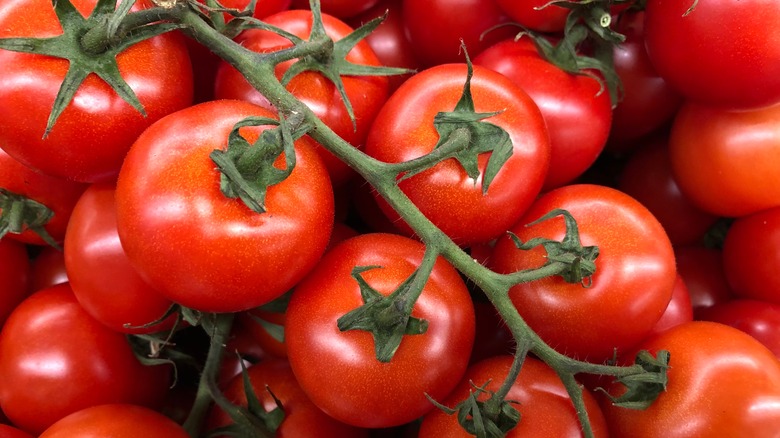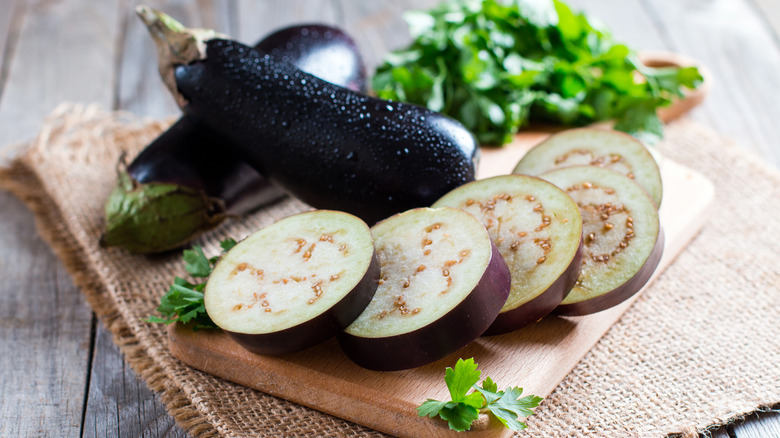Is It Safe To Eat Nightshade Vegetables?
For those who don't know the history of the vegetable that is now an irreplaceable ingredient in hot pizzas, saucy pasta, fresh salads, and sandwiches, tomatoes weren't always held in such high regard. According to Smithsonian Magazine, tomatoes were wrongly considered poisonous in the late 1700s, to the point where the vegetable was infamously dubbed as "poison apple." Its deadly reaction to dinnerware laced with lead aside, the fact that tomato belonged to the nightshade family of vegetables gave it a notoriously lethal rep.
Nightshade vegetables, Healthline explains, are the edible parts of the Solanaceae family of plants. Although now these vegetables include some of the most common ones we find at stores — tomatoes, eggplants, peppers, and potatoes — nightshades have had a long history of being rumored to be poisonous and mystical, even presumed to contain hallucinogenic powers at one point. In fact, while we regularly consume some nightshades, others like tobacco, mandrake, and belladonna are toxic and inedible despite belonging to the same family of plants (via Real Simple).
There's some ambiguity around nightshades: Whether they're safe to eat or not and which ones should be avoided at all costs. Mystical powers, lead poisoning, and rumored narcotic ability aside, there are still some reasons why nightshades can cause bad reactions.
Nightshades are safe to eat unless you're allergic to them
Nightshade vegetables are packed with tons of nutrients. Tomatoes, for example, contain high levels of vitamins A and C, eggplants are rich in antioxidants, and peppers are a good source of vitamin C (via Healthline). This means that not only are nightshades safe to eat but should especially be eaten for their nutritional value.
According to Real Simple, the problem is the alkaloids, particularly the solanine, present in them. Usually present in the leaves and stems of plants as a natural repellent for insects, low levels of alkaloids and solanine are present inside the edible parts of nightshades too. While there is yet to be a scientific study that links the consumption of solanine with any health problems, people often complain of arthritic ailments, inflammation, and difficulty in breathing — all of which are a speculated result of consuming the solanine present in nightshades.
But this doesn't make nightshades harmful for everybody. Because the solanine is present at such low levels, Real Simple says that nightshades are perfectly safe to eat for most. Unless you observe yourself and find that you have a particular sensitivity or allergy to solanine — in which case nightshades should be treated or avoided as any other food allergy — nightshades will do you no harm.

